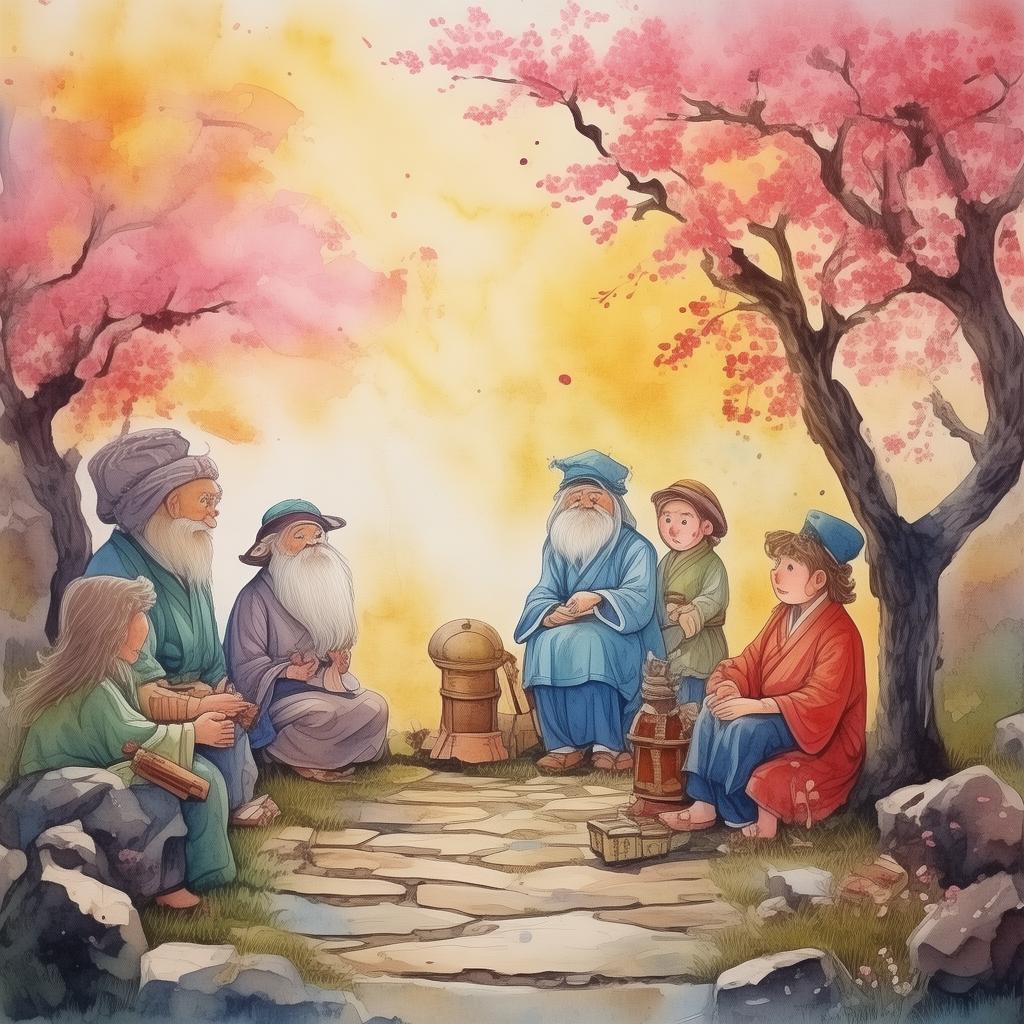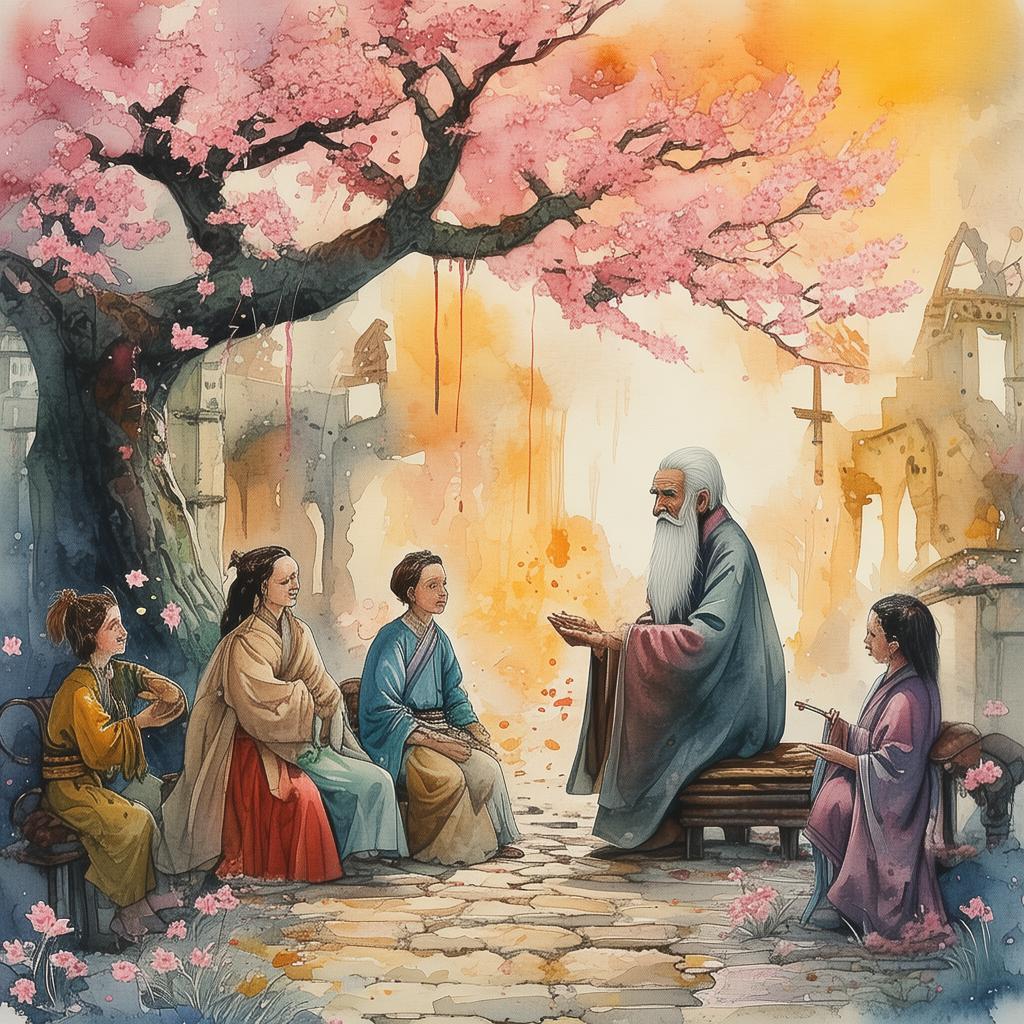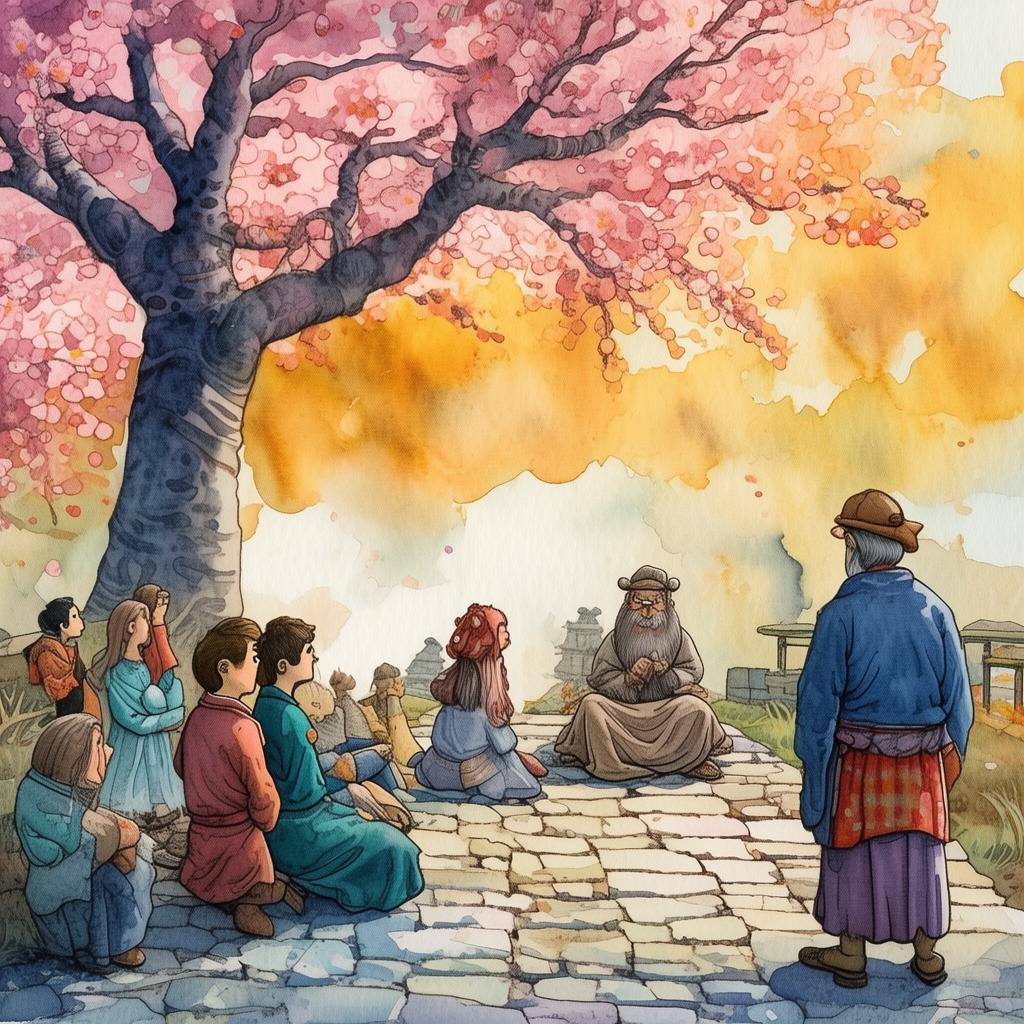The Labyrinth of the Soul: The Quest for Inner Peace
In the ancient city of Jingzhou, there lived a young poet named Xiao Li, whose words danced with the rhythm of the heart and the whispers of the soul. His verses were said to hold the power to heal the deepest wounds and soothe the most turbulent minds. Yet, despite the acclaim and the inspiration he brought to others, Xiao Li himself was lost in a labyrinth of his own making—a labyrinth of his soul.
The tale begins with Xiao Li standing at the threshold of his own mind, a place where the past, present, and future intertwined like the paths of a thousand dreams. He felt the weight of memories that clung to him like shadows, memories of heartache, betrayal, and unfulfilled dreams. It was in this moment that Xiao Li decided to write a poem that would serve as his mapless guide through the soul's labyrinth—a journey to find the peace that eluded him.
He began his quest in the chamber of the past, where memories of his youth were stored like ancient scrolls. Here, he encountered the specter of his father, a man of few words but profound love, who had left him an inheritance of wisdom and sorrow. "The path to peace," his father's voice echoed in Xiao Li's mind, "lies in forgiving what cannot be changed."
As Xiao Li ventured deeper, he entered the hall of regrets, where the ghosts of his unspoken words and unfulfilled promises haunted him. "Regret is the anchor that binds us to the past," he realized, as he wrote his reflections on the walls of the chamber. It was here that he learned the first lesson of the labyrinth: "Forgiveness is the key that unlocks the door to the present."

With the weight of his regrets lightened, Xiao Li moved on to the chamber of the future, where he saw visions of his life as it could be. "Ambition is the fire that fuels our journey," he mused, "but it is also the flame that can burn us alive." In this chamber, he discovered his deepest desire—to live a life of purpose and to leave a legacy of love.
The next stop was the hall of uncertainty, where Xiao Li faced the specter of doubt. "Fear is the shadow that follows us in the dark," he wrote, "but it is also the light that illuminates our path." It was here that he learned the second lesson of the labyrinth: "Courage is the lantern that guides us through the darkness."
As Xiao Li continued his journey, he encountered the voices of his ancestors, who spoke of the wisdom of the ages. "The soul's labyrinth is not a place of confusion," they said, "but a temple of self-discovery." It was a message that resonated deeply within him, reminding him that his journey was not about finding peace in the external world, but in the quiet space within his own heart.
The final chamber was the heart of the labyrinth, where Xiao Li stood before a mirror. "The soul's labyrinth is a reflection of the self," he realized. "It is where we meet our deepest fears, our greatest joys, and our highest hopes." In this chamber, he found the peace he had been seeking, not as a destination, but as the result of his journey.
As Xiao Li emerged from the labyrinth, he carried with him the wisdom he had gained. His verses now held a new depth, a new understanding of the human condition. He returned to the world, no longer a mapless poet, but a guide through the soul's labyrinth for others who sought to find their own inner peace.
The story of Xiao Li's journey through the soul's labyrinth became a legend, a tale of transformation and self-discovery. It taught that the path to peace is not without its challenges, but that within each of us lies the strength to navigate the labyrinthine mind and emerge wiser, more compassionate, and truly at peace.
✨ Original Statement ✨
All articles published on this website (including but not limited to text, images, videos, and other content) are original or authorized for reposting and are protected by relevant laws. Without the explicit written permission of this website, no individual or organization may copy, modify, repost, or use the content for commercial purposes.
If you need to quote or cooperate, please contact this site for authorization. We reserve the right to pursue legal responsibility for any unauthorized use.
Hereby declared.









